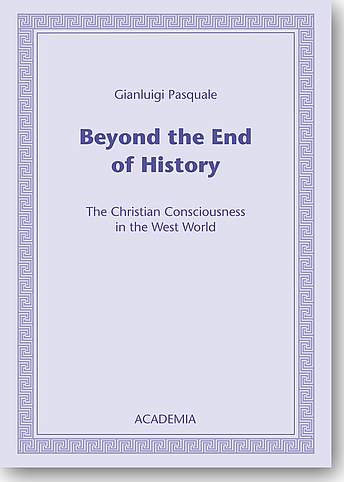Pasquale
Beyond the End of History
ISBN 978-3-89665-521-9
englischWe have all asked ourselves, at least once in our lifetime, about the meaning of history. If reflection on history searches for the meaning of men's acting and suffering in time, the classic historian's question 'How did it come about?' turns into the modern historian's 'How will it end?' Thus, when the question of the meaning of history comes up in our existence, we think less about the past and more about the future, as 'our' history. And this is where philosophy of history is born.
Our 'thinking of tomorrow' is conditioned from the start by Jewish and Christian thought, as shown by Karl Löwith, who was influenced by Oscar Cullmann and his belief that history is the coming-toward man of salvation. Löwith did not consider Western history as secularized Christian eschatology, but rather as permanent apocalyptics. Today the choice between Löwith and Blumenberg is fatal for the understanding of postmodernity: it implies the possibility that secularization in Europe has only just started, without implying that history is at its end, since there is always another 'beyond' to imagine as a more definitive possibility.
englischWe have all asked ourselves, at least once in our lifetime, about the meaning of history. If reflection on history searches for the meaning of men's acting and suffering in time, the classic historian's question 'How did it come about?' turns into the modern historian's 'How will it end?' Thus, when the question of the meaning of history comes up in our existence, we think less about the past and more about the future, as 'our' history. And this is where philosophy of history is born.
Our 'thinking of tomorrow' is conditioned from the start by Jewish and Christian thought, as shown by Karl Löwith, who was influenced by Oscar Cullmann and his belief that history is the coming-toward man of salvation. Löwith did not consider Western history as secularized Christian eschatology, but rather as permanent apocalyptics. Today the choice between Löwith and Blumenberg is fatal for the understanding of postmodernity: it implies the possibility that secularization in Europe has only just started, without implying that history is at its end, since there is always another 'beyond' to imagine as a more definitive possibility.


